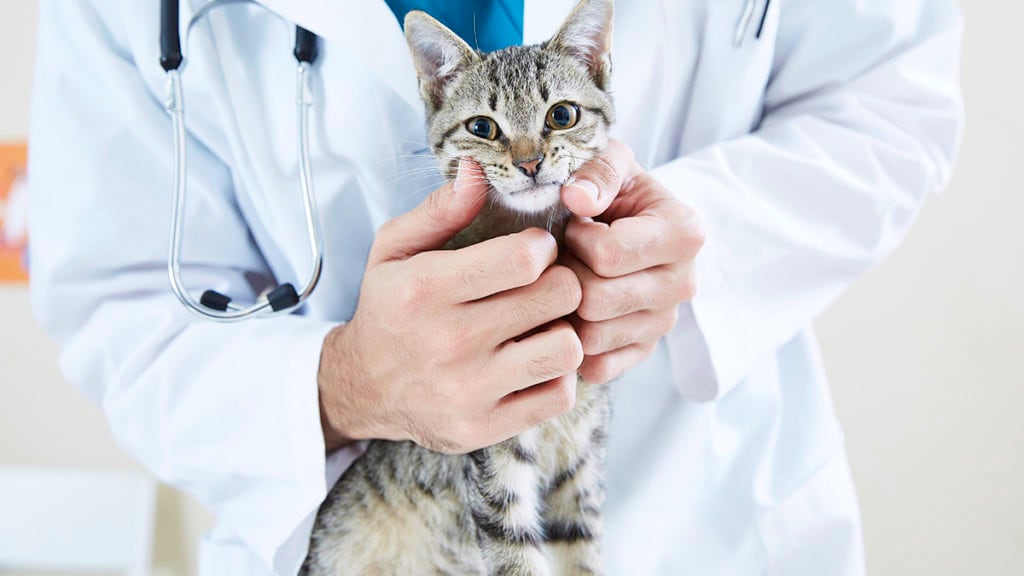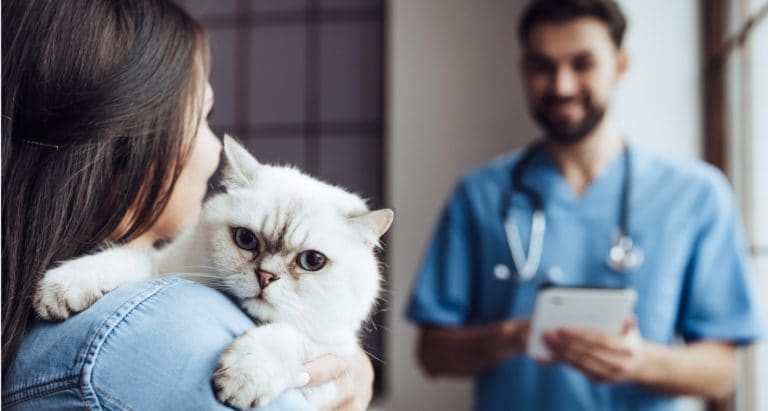When our pets are sick, it can be difficult to determine the best course of action to help them feel better. A trip to the vet will uncover some treatment options, and a holistic veterinarian might suggest a few alternative options you may want to consider. While traditional Western medicines are still the more common treatments prescribed, traditional Chinese veterinary medicine—including herbal medicine for animals and veterinary acupuncture—are certainly making a name for themselves, as well.
“Chinese medicine is based on over 2,500 years of observation of the body and its reactions to touch, herbs, food and the environment,” says Dr. Judy Morgan, DVM, CVA, CVCP, CVFT and holistic veterinarian. “[Traditional Chinese veterinary medicine] practitioners use the sense of smell, taste, feel, sight and hearing when diagnosing their patients. The body is looked at as a whole, as every organ system interacts with the others, rather than only looking at the kidneys, or heart or liver, for example.”
Deciding whether or not traditional Chinese veterinary medicine is right for your pet can be tricky, so it helps to understand the facts. We asked Dr. Morgan to take us through the basics so we could better understand how animal acupuncture, herbal medicine for animals, and other types of traditional Chinese veterinary medicine and treatments might help our pets to heal.
Traditional Chinese Veterinary Medicine Options
There are many treatment options that fall under traditional Chinese veterinary medicine, with herbal medicine for animals, food therapy and animal acupuncture being a few popular therapies.
According to Dr. Morgan, “Food and herbal therapy can be used to decreased inflammation, increase energy and heal organ dysfunction. [Animal acupuncture] can be used to rebalance the body, decrease inflammation, speed up healing and help with overall well-being.”
A licensed holistic veterinarian can help walk you through all the different options in traditional Chinese veterinary medicine and the benefits they might offer.
Traditional Chinese Veterinary Medicines vs. Western
Just like with Western treatments, every pet is different and will have different responses to holistic treatments, warns Dr. Morgan. “Unfortunately, many Western treatments are only used to treat symptoms or to put out a fire,” she continues. “Chinese medicine healing looks for a long-term change, bringing about healing from within. Chinese medicine helps the body heal itself.” As far as side effects go, there tend to be very few when using foods, herbs, acupuncture, tui na and exercise, Dr. Morgan adds.
Chinese Veterinary Medicine Drawbacks
For starters, Chinese therapies may take longer to work than Western medications. “Healing does not take place overnight,” says Dr. Morgan. “But achieving long-term resolution versus short-term resolution with longer-lasting side effects is worth the wait.”
Dr. Morgan points to allergy patients as a good example. “Steroids will stop the itching almost immediately, but nothing has been done to stop the allergy from occurring,” she says. “By using Chinese medicine, the herbs and food changes can stop the itch permanently by eliminating the source of the allergy. Food and herbal therapy have been used to stop environmental allergies as well as just food allergies.”
As mentioned above, also keep in mind that every pet is different, and every pet’s body is different. Just because something worked for one animal doesn’t mean it will also work for yours, so patience is key.
When Should Traditional Chinese Veterinary Medicine be Considered?
Dr. Morgan appreciates when clients start using traditional Chinese veterinary medicine early in their pets’ lives, but notes that it’s much more common for owners to wait until after Western medicines haven’t worked before looking into potential holistic medicine options. “By addressing the overall body instead of putting out fires one at a time, pets can avoid falling into the chronic inflammatory disease state that is common to so many,” she adds.
If you’re interested in considering traditional Chinese veterinary medicine for your own pet, be sure to find a licensed and well-respected holistic veterinarian first. The American Holistic Veterinary Medical Association can help you with your search.

Cheryl Lock is a writer and editor who lives in Denver, Colorado with her husband, daughter and cat, Penny. Her work has appeared in dozens of newspapers, magazines and websites, and she’s written about everything from pets and politics to parenting, travel and food. Find more of her work at CherylLock.com, or follow her passion for travel on her blog at WearyWanderer.com.
Share:









